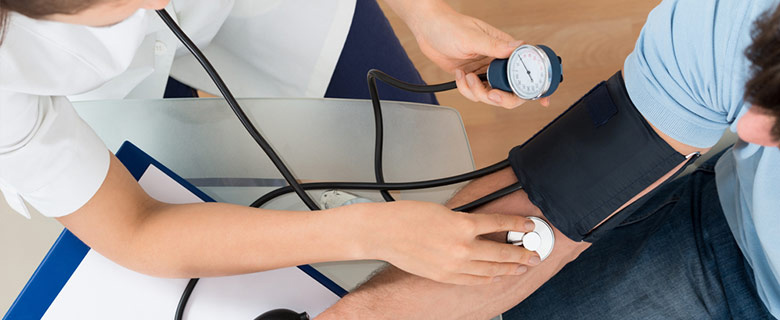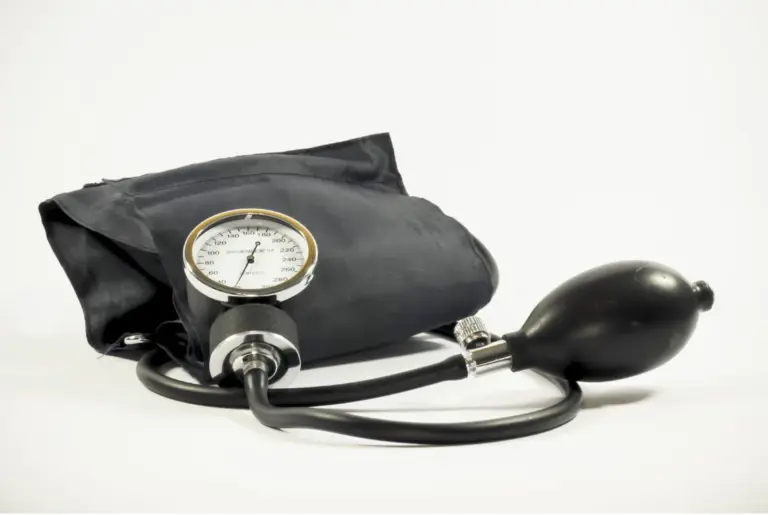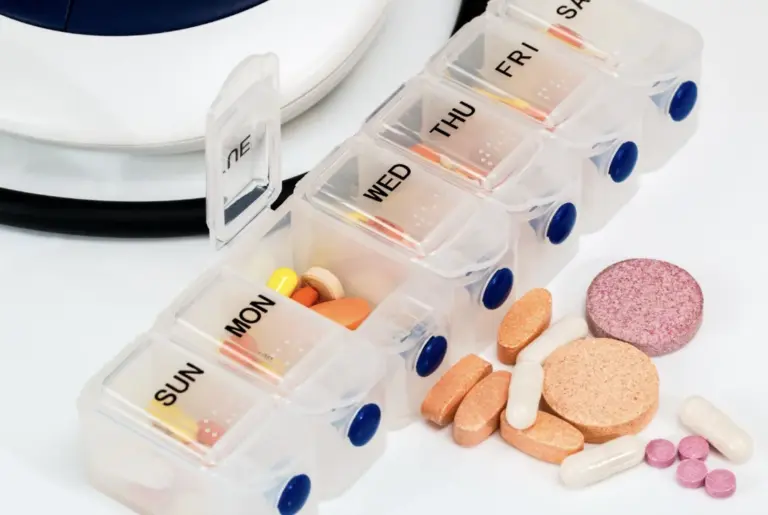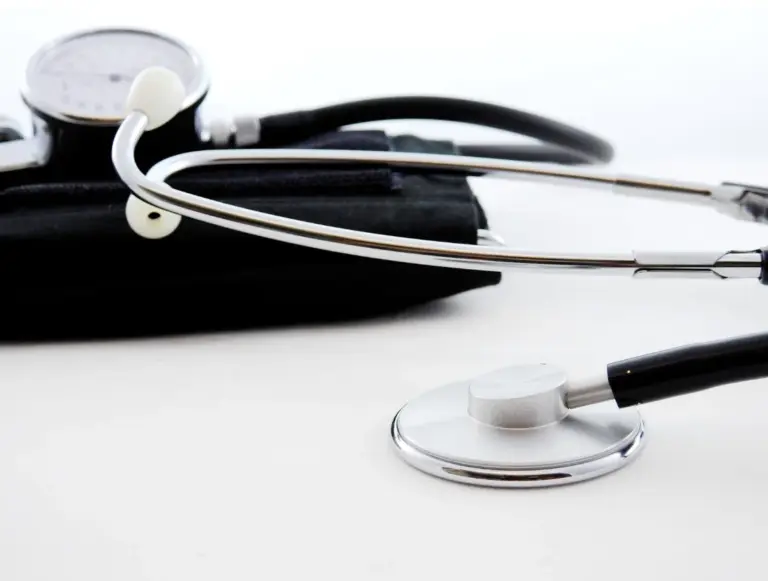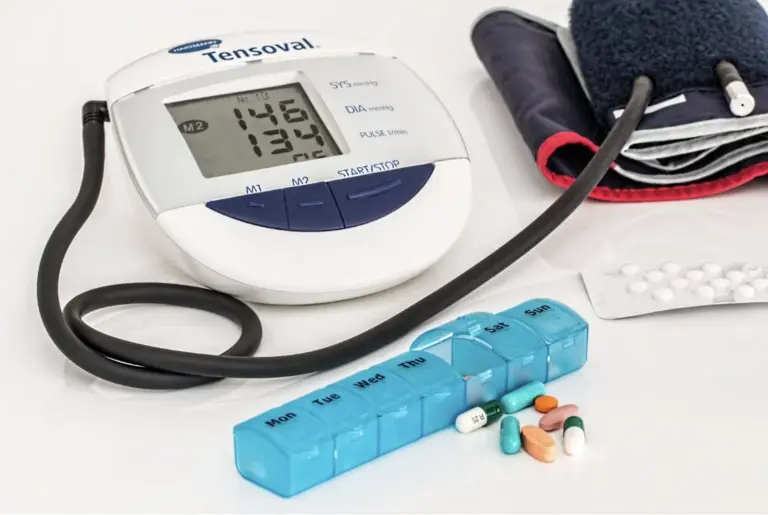Hypertension or high blood pressure is a long-term medical condition in which the blood pressure in the arteries is persistently elevated, with readings greater than or equal to 140/90 mm Hg.
What Is Prehypertension?
Stage 1 hypertension is called prehypertension because it is a warning sign that the person may get high blood pressure in the future. High blood pressure is a dangerous condition as it affects the body’s vital organs and can lead to heart attack, strokes, dementia, coronary heart disease and kidney failure. Thus, the diagnosis of prehypertension must be taken seriously as it can lead to hypertension.
As blood pressure tends to fluctuate, prehypertension diagnosis is based upon two or more readings at two or more separate occasions separated by at least one week.
Are There Prehypertension Symptoms?
Just as there are no high blood pressure symptoms, prehypertension also does not have any distinct symptoms at the time of diagnosis and thus may go undetected for a long time. Although some warning signs of high BP such as dizziness, fatigue, headaches may be seen.
What Are Prehypertension Causes?
In more than 90% of cases, high blood pressure develops without any specific cause. But certain factors that increase the pressure in the arteries can cause prehypertension. They include:
- Atherosclerosis –
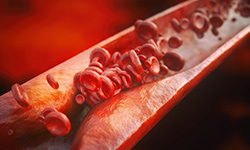 Atherosclerosis is the buildup of deposits such as fats, cholesterol plaque and other substances in and on the artery walls which obstruct blood flow and may lead to high blood pressure.
Atherosclerosis is the buildup of deposits such as fats, cholesterol plaque and other substances in and on the artery walls which obstruct blood flow and may lead to high blood pressure. - Sleep Apnea –
 Obstructive sleep apnea which occurs when breathing is briefly and repeatedly interrupted during sleep can increase the risk of high blood pressure. In fact, sleep apnea and high blood pressure have both been linked to significantly increased risk for serious complications such as stroke and heart attack.
Obstructive sleep apnea which occurs when breathing is briefly and repeatedly interrupted during sleep can increase the risk of high blood pressure. In fact, sleep apnea and high blood pressure have both been linked to significantly increased risk for serious complications such as stroke and heart attack. - Kidney Disease –
 People with hypertension can develop chronic kidney disease (CKD). The kidney produces a hormone that helps regulate blood pressure and any slight increases in blood pressure is harmful to their effective functioning. Doctors now says that even prehypertension can damage the kidneys as in a recent study one out of six people with prehypertension developed CKD.
People with hypertension can develop chronic kidney disease (CKD). The kidney produces a hormone that helps regulate blood pressure and any slight increases in blood pressure is harmful to their effective functioning. Doctors now says that even prehypertension can damage the kidneys as in a recent study one out of six people with prehypertension developed CKD. - Adrenal Disease –
 Adrenal glands that are situated above the kidneys produce a variety of hormones that regulate blood pressure among other essential functions. Excess production of hormones by the adrenal glands can cause sudden increase in blood pressure or prehypertension.
Adrenal glands that are situated above the kidneys produce a variety of hormones that regulate blood pressure among other essential functions. Excess production of hormones by the adrenal glands can cause sudden increase in blood pressure or prehypertension. - Thyroid Disease –
 The thyroid gland secretes hormones that influence the temperature of the body, developmental growth, metabolism, and blood pressure. If the thyroid gland begins to malfunction in it may cause hypothyroidism or hyperthyroidism which may result in sudden spike in blood pressure or prehypertension.
The thyroid gland secretes hormones that influence the temperature of the body, developmental growth, metabolism, and blood pressure. If the thyroid gland begins to malfunction in it may cause hypothyroidism or hyperthyroidism which may result in sudden spike in blood pressure or prehypertension. - Medications –
 Certain medication such as birth control pills, cold remedies, decongestants, over-the-counter pain relievers and some prescription drugs may also cause blood pressure to rise temporarily.
Certain medication such as birth control pills, cold remedies, decongestants, over-the-counter pain relievers and some prescription drugs may also cause blood pressure to rise temporarily. - Drugs –
 Illegal drugs such as cocaine and amphetamines can result in sudden spike in blood pressure.
Illegal drugs such as cocaine and amphetamines can result in sudden spike in blood pressure.
Prehypertension Effects:
Prehypertension by itself doesn’t often have complications but, if untreated or uncontrolled, can worsen and develop into hypertension or high BP.
Doctors use the term prehypertension as a warning sign to patients to make healthy lifestyle adjustments (such as low sodium, high fibre diet, no smoking, no tobacco, very limited alcohol, regular exercise, weight management, etc.) so that the condition does not translate into high blood pressure as HBP can damage your organs and increase the risk of heart attack, heart failure, stroke, and dementia.
Also, if patients have some existing medical conditions such as diabetes, that can affect blood pressure, they are advised to take proper medications to prevent an increase in blood pressure.
Who is at risk for developing prehypertension?
1. Overweight or obese people:
One of the main risks for prehypertension. The more the body mass, the more blood is needed to supply oxygen throughout the body. This means more blood circulated in the blood vessels resulting in extra pressure on the artery walls.
2. Younger People:
Younger adults are more likely to have prehypertension than older adults.
3. Men:
Prehypertension is more common among men than in women.
4. People with a family history of high BP:
If the parents, siblings have high blood pressure, chances are that the person is more likely to develop high BP as hypertension tends to run in families.
5. People who don’t exercise:
Lack of exercise can lead to coronary artery disease which can increase the blood pressure.
6. People who include a high sodium, low potassium diet:
Potassium (helps to lower blood pressure by balancing out the negative effects of salt) and sodium (although sodium helps maintain the balance of water in and around the blood cells, more sodium means extra fluid in the body which means more pressure on the blood vessels) are two of the essential nutrients that the body requires, Too little potassium and too much sodium can put the person at risk of developing high BP.
7. Smokers, drinkers & tobacco users:
Smoking, consuming tobacco and excess drinking all can result in high blood pressure.
8. People with certain medical conditions:
People who suffer from certain chronic conditions such as high cholesterol diabetes and sleep apnea are at a higher risk of prehypertension.
Note of caution: This article is for information purpose only. Always consult your doctor in case of any blood pressure or other health-related problems.
Disclaimer
The information contained in this article is to educate, spread awareness in relation to hypertension and other diseases to the public at large. The contents of this article are created and developed by BPinControl.in through its authors, which has necessary, authorisations, license, approvals, permits etc to allow usage of this articles on The Website. The views and opinions expressed in this article are views, opinions of the respective authors and are independently endorsed by doctors. Although great care has been taken in compiling and checking the information in this article, The Website shall not be responsible, or in any way liable for any errors, omissions or inaccuracies in this article whether arising from negligence or otherwise, or for any consequences arising therefrom. The content of this article is not a substitute for any medical advice. The Website shall not be held responsible or liable for any consequence arising out of reliance on the information provided in the article.
